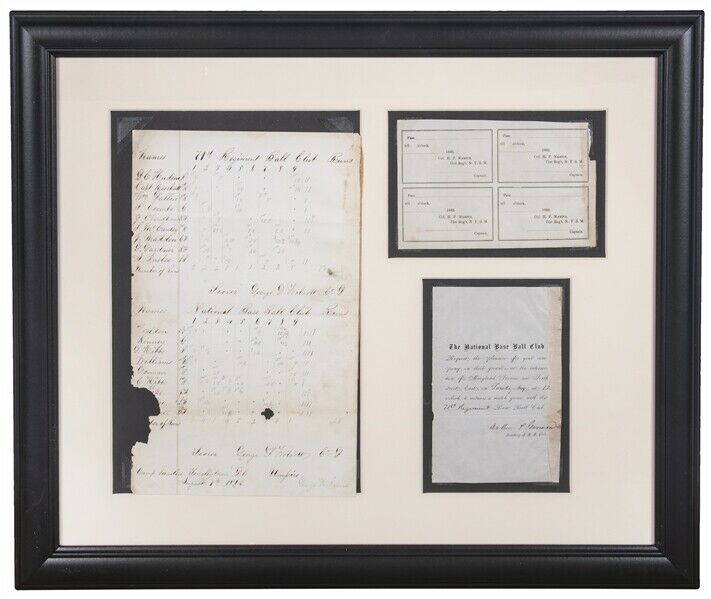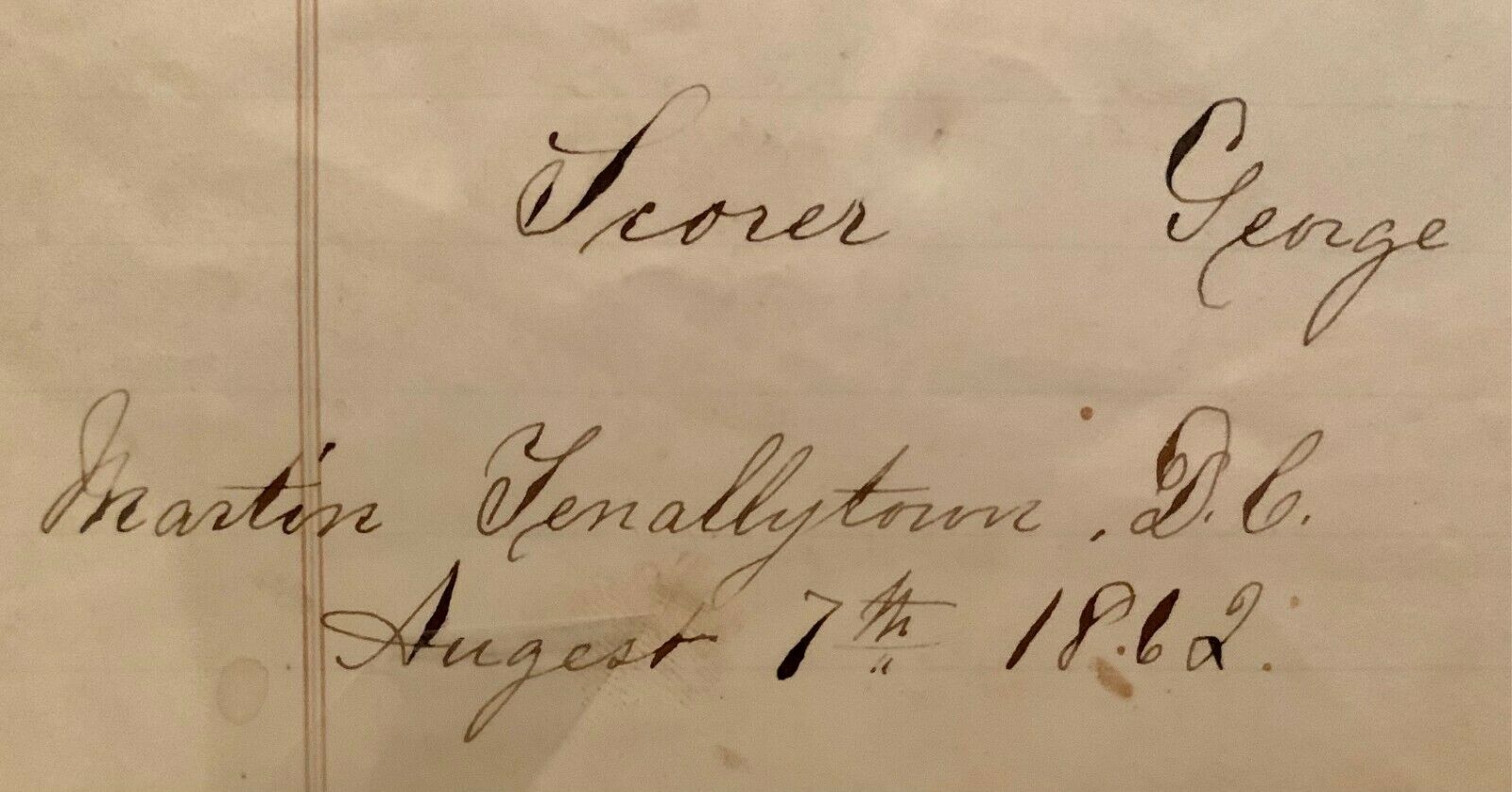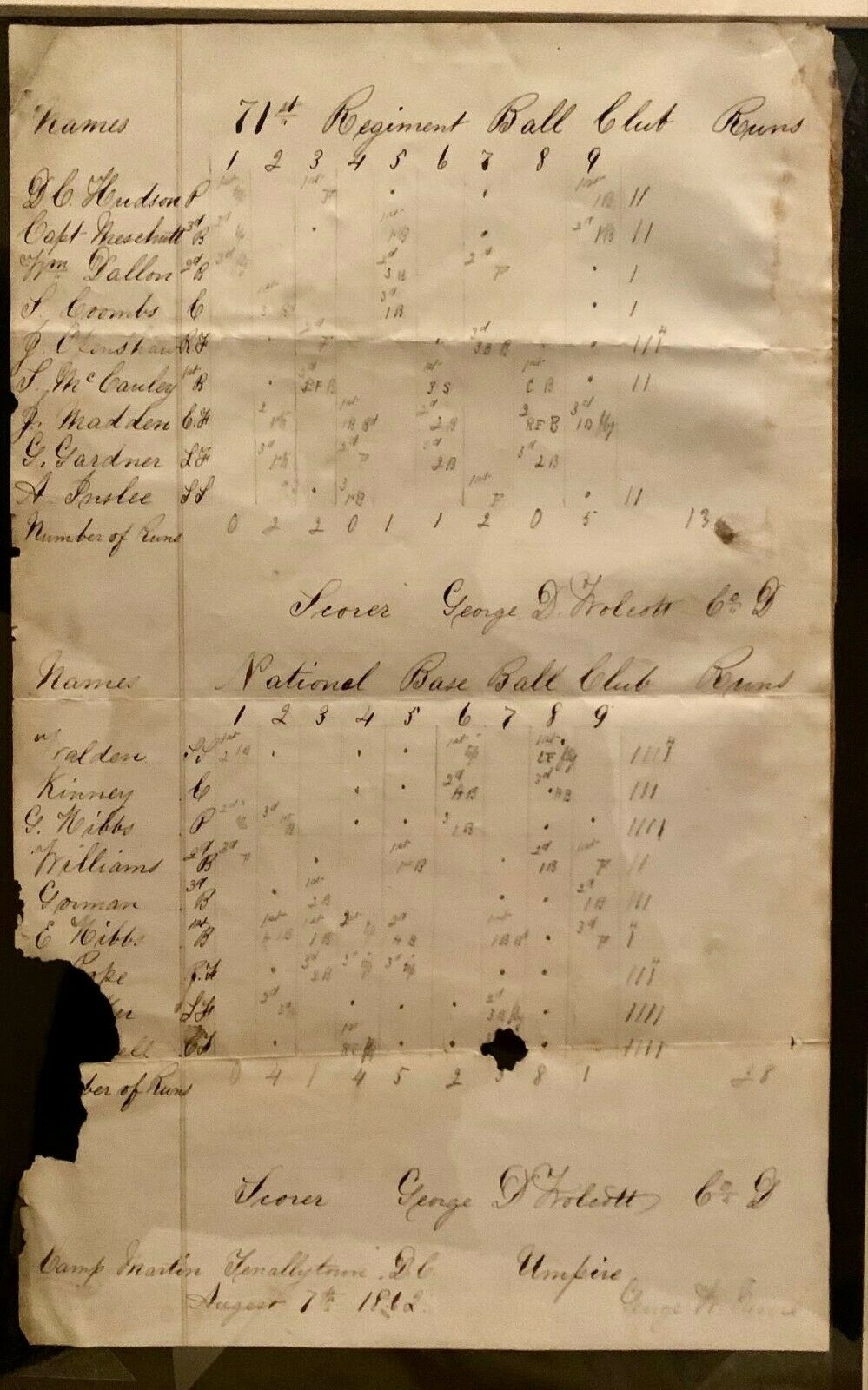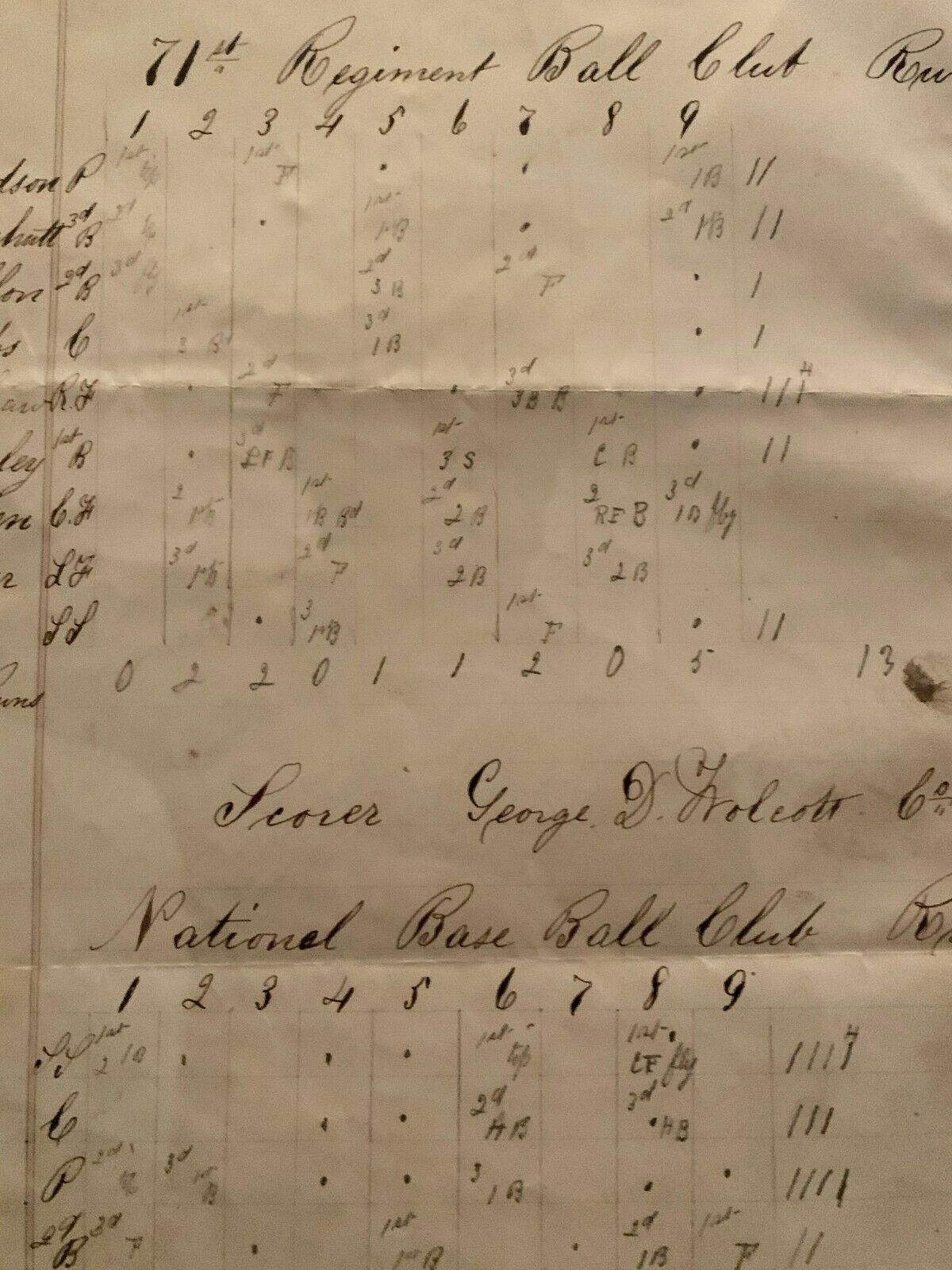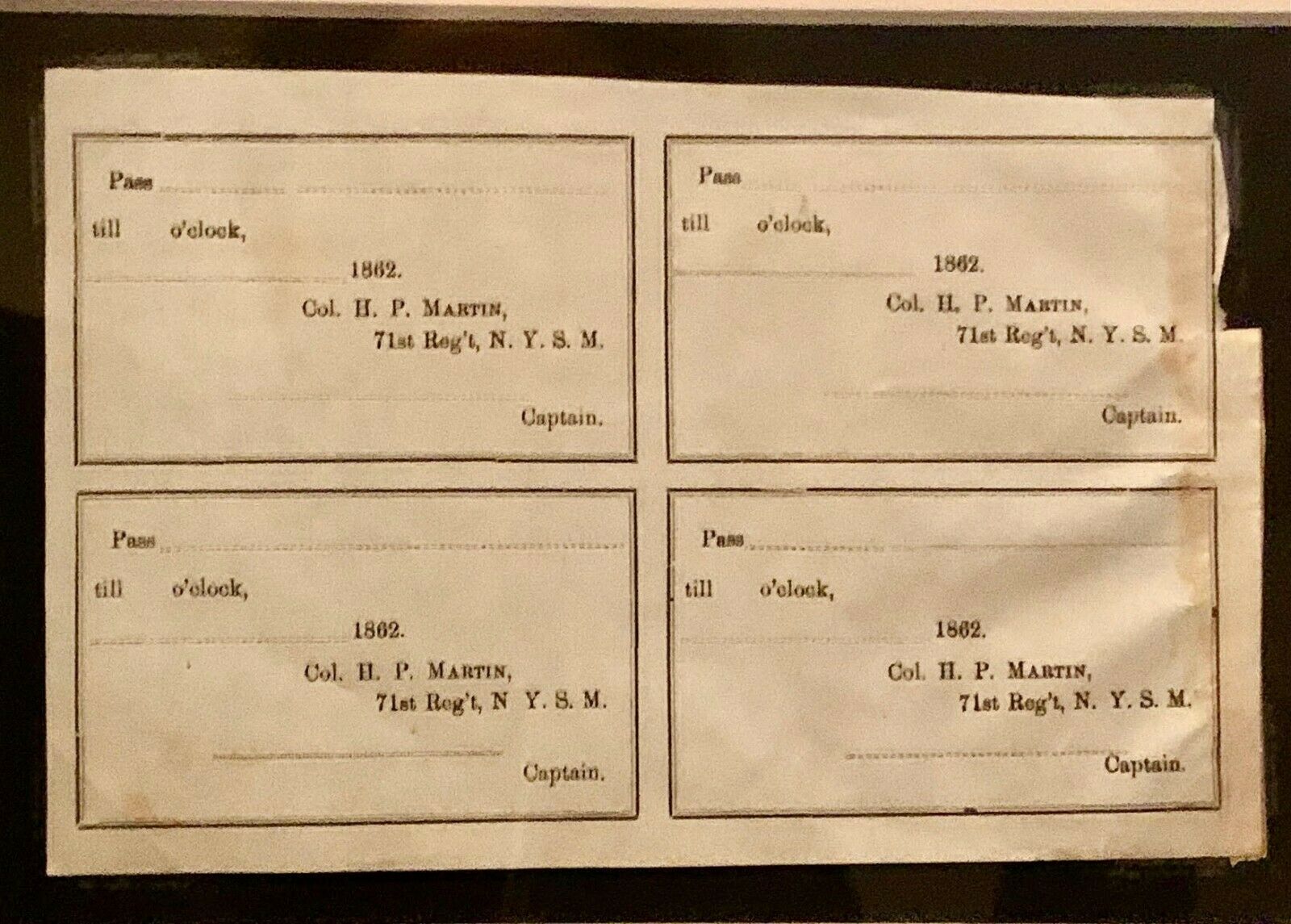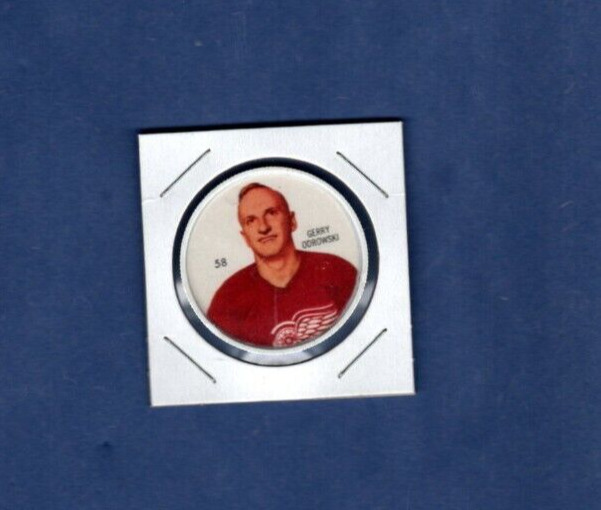-40%
Incredible Civil War Baseball Scorecard, Passes & Invitation - August 7th 1862
$ 1.18
- Description
- Size Guide
Description
What better way to celebrate the Midsummer Classic and the National than with one of the earliest and most significant baseball collectibles in existence. Next year will be the 160th anniversary of the game offered here. This is a true piece of history, plain and simple.For your collecting pleasure, we offer an extremely historically significant Civil War era baseball score sheet, along with related items. This collection dates to the summer of 1862 and while any baseball item from the Civil War era is exceedingly rare, this offered score sheet also holds the distinction of being one of the earliest baseball score sheets in existence.
Included in this display is a preprinted invitation to the game signed by Arthur Gorman, the secretary of The Washington Nationals, making this an even more extraordinary item. This is not just the earliest baseball spectator invitation, but is the only invitation of its type from this era that has ever been seen.
The one-page score sheet, which was recorded on a lined page from a ledger, documents an extremely important and highly publicized game between the National Base Ball Club of Washington, D. C., and the 71st Regiment Ball Club on August 7, 1862. The 71st Regiment Club was made up of members of the American Guard, 71st Regiment, New York State Militia and this is one of the most celebrated baseball matches of the Civil War, referenced in virtually all books on baseball and the Civil War, and on all short lists of significant games during the war. The sheet dutifully notes the name of each club, the starting lineups, the official scorer (“George D. Wolcott”), the umpire (“George W. Moore”), the date, and the location of the game (“Camp Martin, Tenalytown, D.C.”). All of the information is inscribed in black ink with the exception of the umpire’s name and the actual scoring information, which is executed in pencil. As recorded here, the Nationals defeated the 71st Regiment Club by a score of 28-13.
The two clubs met one year earlier and the score sheet from this game was the second meeting and was the first time an established team faced another regiment as opposed to soldiers from the same unit playing against themselves. The sheet, which is matted inside the frame, measures approximately 8 ½ x 14 inches and has three horizontal fold lines. There is a large tear along the left border that affects the last three player names for the National Base Ball Club, with a smaller interior tear, minor toning, and paper residue on the reverse. Given its age, it is in good overall condition. overall.
Also included in this display are a formal invitation and newspaper clipping for a game played between the same two clubs one year earlier in 1861. The invitation is 5 x 7 ½ inches and reads in both print and handwriting “The National Base Ball Club requests the pleasure of your company on their grounds, at the intersection of Maryland Avenue and Sixth street, East on Tuesday at 12 o’clock, to witness a match game with the 71st Regiment Base Ball Club” It is signed in black ink by “Arthur P Gorman,” Secretary N. B. B. P. With two horizontal folds, tiny edge tears, and paper residue on the reverse. The newspaper clipping, which is approximately 2 ¼ x 3 ¼ inches and is not inside the frame, but will accompany this item provides a brief recap and the box score from the contest, which was won by the 71st Regiment by a score of 42-13. Additionally, there is an uncut sheet of four military passes, each bearing the preprinted name of “Col. H. P. Marten/71st Reg’t N. Y. S. M.” and dated 1862. The passes provide spaces to include information that would be handwritten, including the name of the soldier, the time, and the date. Each pass measures 3 ¼ x 2 inches with the uncut sheet measuring 7 ½ x 4 ¾ inches. This sheet displays light toning and a small tear along the right border.
